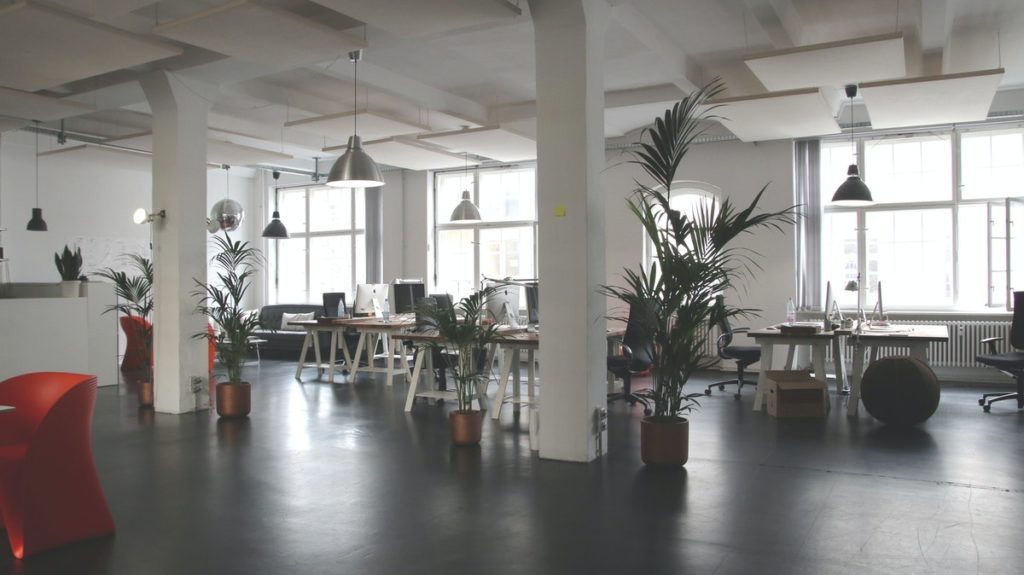Employees are the most important assets of any business. Top-performing and efficient workers are key drivers of pushing a business towards its success, while a slow-moving workforce can drag a business to the ground. Sadly, most companies abuse the capabilities of their workers by providing them with a poor working environment that triggers various health issues.
First and foremost, business owners must consider the probable health effects of the work environment on their workforce. According to Performance Magazine, poor air quality can endanger the health of employees by affecting their sense of well-being and ability to accomplish their duties. In fact, London has 650,000 sick leaves per year caused by contaminated air.
Not only poor air quality can affect work productivity but also the overall business operations. This can happen if a company fails to observe proper maintenance on air-conditioning units and continuous use of harmful chemicals. Failure to prioritize employees’ health can lead to eventual loss of staff and disruptions in the business.
In this article, we will focus on how air pollution affects overall employee performance and the profitability of a business. Learn from this discussion to understand why air quality plays a role in the modern business climate.
Employee cognition
Human cognition involves different memory functions, such as creativity, critical analysis, and decision making. All these factors enable employees to perform their functions that can be crucial in day-to-day operations. But disruptions in cognitive functioning caused by air pollutants can affect a person’s thinking process once it reaches the nervous system.
One example of harmful air pollutants is volatile organic compounds (VOCs) that cause cancer and harmful effects on our brain. Some indoor sources include air fresheners, furniture, flooring, adhesives, and paint. This type of matter may also cause brain inflammation, poor concentration, memory impairment, and oxidative stress that incurs long-term damage to our health.
Carbon dioxide (CO2) is another harmful air pollutant that comes with subtle cognitive effects, but can significantly affect employee productivity. In offices with poor air quality, CO2 hinders focus, triggers headaches, and causes drowsiness and tiredness. Since high concentrations of CO2 are present in our exhalations, the level of CO2 inside meeting rooms is higher because of crowds and tight spaces.
Employee productivity
Productivity is the lifeblood of employee performance. But if a company fails to improve the air quality in their office spaces, air pollution will easily ruin the cognitive function of its employees, leading to poor productivity rates.
Believe it or not, air pollutants lead to a five to six percent productivity decline. It is easy to feel safe if you’re inside a comfy office, but the effects of pollution don’t stop in the outdoors. Fine dust acquired from outdoor exposure takes longer to subside, especially if the person was subjected to long exposures. Once it affects the concentration of affected employees, this will lead to negative implications to their work capabilities.
Even VOCs can also disrupt employee functioning. Inhalation of VOCs leads to memory impairment, making it more challenging to communicate and multitask. This also applies to CO2 by causing fatigue and poor concentration. All these effects on cognitive functioning result in poor work outcomes in the company.
Recruitment

Aside from cognitive issues, air pollution can lead to severe health issues. One example is the sick building syndrome (SBS), where employees develop illness because of air quality issues inside a building. As pollutant levels increase, a polluted office building becomes more dangerous for employees who spend long work hours inside the office.
More people today prefer working at a company that highly values the health and well-being of its employees. If skilled professionals recognize the difficulties in their work environment, they will leave their job for a company that offers a healthy workspace. As a result, you have to exert more effort and time in recruiting more staff.
Business growth
Even if your company has stable and solid profit margins and offices remain fully staffed, air pollution can still affect the business growth. This often happens in urban areas, with skyrocketing levels of air pollutants. Before you know it, the effects of air pollution can severely affect the health of your skilled employees, resulting in a lack of business expansion. It can also affect the stability of your company by affecting the performance of existing staff that leads to delays in promotion and training.
Air pollution can also strain the global economy through poor labor income. Whether outdoor or indoor air quality problems, the collective impact of air pollution on employee health can affect the entire economy by injuring business and employee morale.
As environmental movements continue to grow, businesses must exert efforts to sustain a healthy work environment and retain their skilled employees. Remember that caring for the environment is a collective act that can result in a better quality of life.




